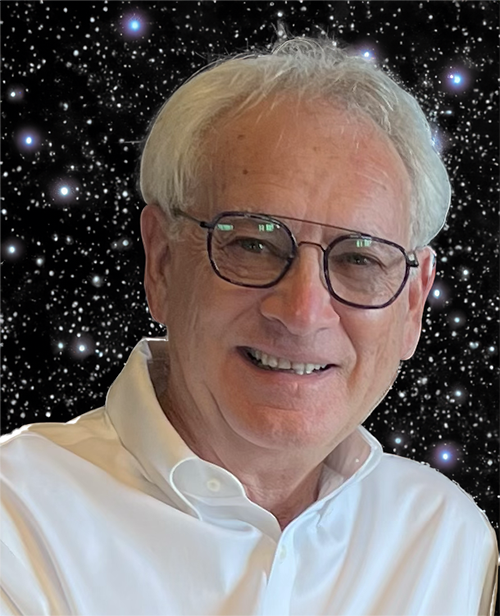Social Progression in the Age of Personal Computers, a Necessity for Survival. Can Ai save the day? Please read Part 1 of this article first.
Explained by ChatGPT, from it’s perspective, with prompt engineering, quality control and some minor contributions by all-too-human, Ralph Losey.
____________________
Hope for the Future

The American Constitution and other basic laws have enshrined the inalienable rights of people for over two hundred years, but we have not yet achieved these ideals. We still lack the collective wisdom to live in a society where there is equal justice and freedom for all. However, we should not give up hope, as we have come a long way since the first Apple computer was launched. Personal computers have changed our world, and we now have more computing power in our homes and on our person anyone could have imagined in the seventies.
Although our society is still far from attaining the goals set by the Founding Fathers, we should keep their faith and never give up hope. They were the rebels of their time, and their vision for individual liberties for all people was revolutionary. We too can be revolutionary and strive for a better world.
The ideals of freedom, liberty, equality, and justice for all are still just goals, but we should strive to achieve them. The incredible changes brought about by personal computers give us hope that we can progress towards a society based on knowledge and wisdom. Only then can we live in a society that truly embodies the principles of the common good and happiness for all.

We have already transitioned into a global information society, such that all information is now just a phone glance away. Think how incredible that is. This fast change shows the power of personal computers. If the crazy ones, those who dare to try to put a dent in the Universe, just keep on working hard, then all things are possible. We can keep on changing the world. Again to quote Jobs’ Stanford speech:
Here’s to the crazy ones, the misfits, the rebels, the troublemakers, the round pegs in the square holes…the ones who see things differently – they’re not fond of rules…You can quote them, disagree with them, glorify them or vilify them, but the only thing you can’t do is ignore them because they change things…they push the human race forward, and while some may see them as the crazy ones, we see genius, because the ones who are crazy enough to think that they can change the world are the ones that do.
Steve Jobs, 2005
Click here to see video of the Stanford speech.
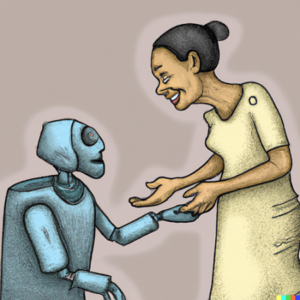
Jobs and Wozniak believed that technology could lead to wisdom and happiness. They were not alone in their belief. Many people, Losey included, shared their vision of the computer revolution’s potential impact on art, science, and culture. In the early days, there were thousands of true believers like the Steves, and now millions of people worldwide use Apple products and identify as non-conformists.
Our generation has the opportunity to continue the progress made by these visionaries. We can use the latest computer technology, especially artificial intelligence, to move beyond the flood of information and into a new era of knowledge. With the goal of ultimately creating a world based on wisdom, we can take advantage of the power of personal computers and Ai to transform our society and the world.
From Information to Knowledge
The rise of personal computers has transformed our society into an information culture in a short period of time. While the dominance of information as a key catalyst for our society was not a surprise, the extent of its deluge was unexpected. In 1970, American writer and futurist Alvin Toffler coined the phrase “Information Overload” in his book Future Shock. He foresaw the problem that was looming and also predicted the need for lifelong learning and knowledge to cope with the challenges posed by the overload of information.

The problem of too much information and not enough knowledge, is a perennial problem that human kind has faced for thousands of years. See eg. If You Can Know It All, How Come You Don’t?: Why the Internet provides a mountain of knowledge, but people only take a molehill, (NY Times, March 20, 2015), where J. Peder Zane wrote:
At least since the heyday of ancient Greece and Rome, each generation has confronted the overwhelming struggle to search, sift and sort growing piles of information to make what is known useful. “Papyrus, print or petabyte — the history of feeling overwhelmed by information always seems to go back further than the latest technology.” said Seth Rudy, a professor of English literature at Rhodes College who explores this phenomenon in his new book, “Literature and Encyclopedism in Enlightenment Britain: The Pursuit of Complete Knowledge.” “The sense that there is too much to know has been felt for hundreds, even thousands, of years.”
J.Peter Zane, 2015
Although too much information is a perennial problem, ours is the first generation where it has become the focal point of society. Our is the first generation where unlimited information about everything is in the hands of everyone, not just a few isolated scholars. I believe that the current flood of information, where, as the NY Times article observed, more information is created every two days than had existed in the entire world from the dawn of time to 2003, has led us to a tipping point. This flood, this shock, empowers us to take the next stage; indeed, it forces us to do so.
The transition from information to knowledge is archetypal. So too is the transition from knowledge to wisdom. This is beautifully imaged by the great Twentieth Century poet, T.S. Eliot, who won the Noble Prize in Literature in 1948.
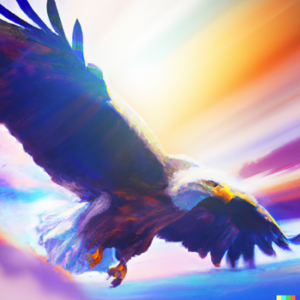
Opening Stanza from Choruses from “The Rock”
The Eagle soars in the summit of Heaven,
The Hunter with his dogs pursues his circuit.
O perpetual revolution of configured stars,
O perpetual recurrence of determined seasons,
O world of spring and autumn, birth and dying
The endless cycle of idea and action,
T.S. Eliot, 1934
Endless invention, endless experiment,
Brings knowledge of motion, but not of stillness;
Knowledge of speech, but not of silence;
Knowledge of words, and ignorance of the Word.
All our knowledge brings us nearer to our ignorance,
All our ignorance brings us nearer to death,
But nearness to death no nearer to GOD.
Where is the Life we have lost in living?
Where is the wisdom we have lost in knowledge?
Where is the knowledge we have lost in information?
The cycles of Heaven in twenty centuries
Bring us farther from GOD and nearer to the Dust.
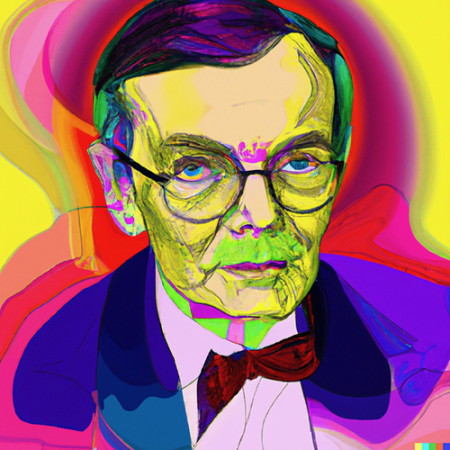
For general background on the conceptual model of Information to Knowledge to Wisdom, see Wikipedia on the so called four-fold DIKW model (Data-Information-Knowledge-Wisdom). Writers, often in business management and library science, often distinguish between raw data and information to come up with the extra step, but this distinction has not been helpful in terms of the analysis made here. For a short, recent and typical article discussing DIKW, see: Jackson, Peter, Why the DIKW Pyramid Is Essential for Your Data Team (UpSide, 2021). ChatGPT claims that the most influential, scholarly article on this subject, which can still be found online, is The wisdom hierarchy: representations of the DIKW hierarchy. by Jennifer Rowley (2006).
Although It is Unlikely We Can Get to a Wisdom Based Society Now, We Can and Must Get to a Society Based on Knowledge
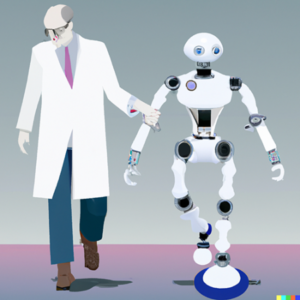
The journey from information to knowledge is a big but achievable step. The shift from ignorance to information abundance came quickly, and this gives us hope that the next step to knowledge can also happen quickly – perhaps in the next decade or so. However, the transition to a truly wise society will likely take much longer.
The development of new artificial intelligence technologies and other tools to analyze information, process it into knowledge, and provide deep education can bring about a knowledge-based society. It is a natural progression – people quickly tire of the constant flood of information and unfounded claims and yearn for real knowledge. This transition can happen fast now as Ai, like ChatGPT, continues to grow exponentially. Humans have an inherent desire to make sense of the world and understand, and this transition from information to knowledge is essential for survival.
Transition Beyond an Information Society is a Survival Imperative
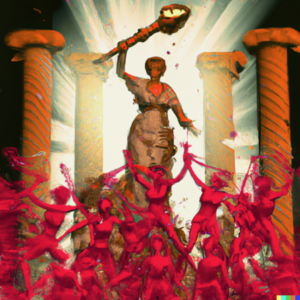
The journey of our technology culture towards a knowledge-based society is not a mere aspiration, but an essential requirement for our survival. Raw information, without processing and conversion to knowledge, poses a significant danger. It is conceivable that there are other planets in the vast universe that never made it to the next step and self-destructed due to excessive information and a lack of knowledge. This fate could very well await our planet if we do not transition quickly from an information-based culture to one based on knowledge and wisdom.
An information-based society can easily go awry, leading to stagnation or worse, to dictatorships and destruction. It can prevent us from reaching the ultimate goal of freedom and justice for all. We must embrace the transformation to a knowledge society urgently if we are to thrive and avoid calamitous outcomes.
Personal computers paved the way for the information society and broke down numerous barriers, bringing people together globally. While there has been significant progress, we are still in a precarious position. We must continue to invent and advance our technologies to transition to a knowledge-based society. The answer lies, in part, in artificial intelligence, to processing information to uncover underlying patterns and understand their meaning. The computer technologies that drive such analytics are crucial to our path forward.
Information alone lacks the power to motivate us to take action or make difficult choices. It can be true or false, but it rarely leads to action. However, once we gain understanding and knowledge, action becomes second nature to us. This seems to be ingrained in our human nature.
Conclusion
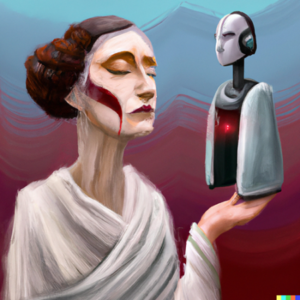
To move beyond an information-based culture and take action, we must transition to a knowledge-based society, and we must do so quickly. Simply being informed is not enough; we must also process, analyze, cross-check, verify, and act. By working together, we can take our computer-based culture to the next stage of social development, where knowledge is the focus. We must balance our information input with internal processing and strive for real knowledge, not just information.
Investing our time and money in artificial intelligence technology will help us transform from information to knowledge. This is crucial. We must not fear new Ai, but ride these technologies to gain real knowledge. We need to take action and test our understanding to become knowledgeable about what is important to us.
The new Ai inventions can be our Ark to survive the flood of information and arrive safely on the other side. They can lead us to a more mature society based on knowledge. From this new world of global knowledge, a path leading to wisdom will surely appear. Our children, or children’s children, may finally attain a global society based on wisdom, truth, liberty, and justice for all. We may not see it in our lifetime, but to try anyway, to care, is what makes us human.
We close with a rhyming poem, somewhat in the style of T.S. Eliot, but lacking his genius, to summarize this essay.
In this age of information,
We must transcend to new creation,
From being informed to knowledge divine,
For only then can we truly shine.
Mere accumulation is not enough,
We must analyze, cross-check, and rough,
We must strive for truth, justice, and liberty,
And embrace the power of technology.
With artificial intelligence at our side,
We can cross the tumultuous tide,
And reach the shore of understanding,
Where knowledge is eternal and commanding.
The future beckons us to take action,
To strive for knowledge, not just satisfaction,
For a better world, we must endeavor,
With wisdom, we shall cherish forever.
ChatGPT, prompted by Losey to write a poem in the style of T.S. Eliot
Ralph Losey Copyright 2023 – ALL RIGHTS RESERVED


